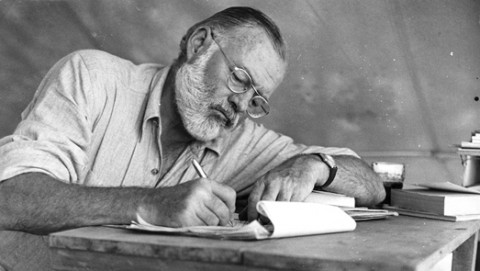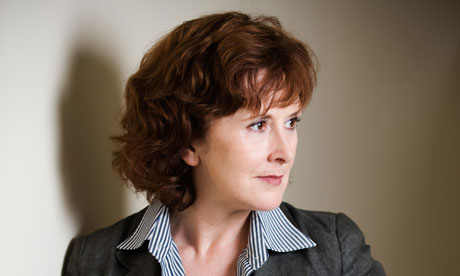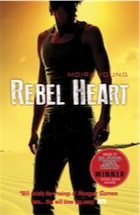Carlos Acosta: ‘Writing is very lonely but it’s not nearly as painful as dance’
Carlos Acosta is one of the best and most famous dancers in the world. So why did he write his first novel?
‘My baby!” cries Carlos Acosta, swooping down on my copy of his first novel, Pig’s Foot, and giving it – mwah! – a smacking kiss. He is glowing with pride, as well he might be. He’s just read a rave review that compares the book with Günter Grass’s The Tin Drum.
“Did you like it?” he asks. Yes, I did. “What did you like about it?” You might suspect another writer of fishing for compliments, but not Acosta. He has spent three of his four decades in rehearsal rooms, analysing every step. The habit of taking something apart – a gesture, a novel – so as to put it together again, refined and improved, comes as naturally to him as breathing.
One thing I like about his novel, I say, is that it has a distinctive voice: pungent, original and funny. His narrator, Oscar Kortico, is the sole survivor of four generations of a Cuban family, originally – like Acosta’s father’s family – of slave origin. The novel opens in midstream of consciousness, with Oscar recalling “the day I came home from primary school dragging a dead cat by the scruff of the neck”, and continues in similar trenchant vein. “I’m the narrator and anyone who doesn’t like it can f--- off.”
Episodes of savage violence and almost equally savage sex are punctuated with tender depictions of family life. Acosta is the father of an 18-month-old daughter, Aila, and the novel’s sweetly comic mixture of scatology and transcendent love perfectly captures new fatherhood.
Offstage, Acosta has the potent charisma of someone who doesn’t know what it is like not to be superlative at what he does, an oddly egoless quality of absolute confidence. He is slighter than he seems on stage, and he speaks with the incantatory phrasing and repetitions of a born storyteller.
We already knew he could write. His 2007 autobiography, No Way Home, was praised for its lyrical descriptions of his difficult childhood, growing up in a family of 11 children in a poor suburb of Havana. The book took Acosta 10 years to complete.
“In my house we were not cultured people,” he tells me. “There were no books, and I was a very bad student as well. I never read anything. The whole process of writing, I didn’t know how to do it. But when I was in Cuba, there were often power cuts when we were in school, and there were not many distractions. So we used to gather around and tell stories and jokes, and I was very good at that. Unconsciously, I always liked storytelling, without knowing that I could write anything.
“When I arrived here in Britain, I met somebody who introduced me to all these books and I began reading: The Great Gatsby, The Catcher in the Rye, Notes from Underground, which I really liked. I would analyse with a critical eye, until I got a sense of what makes a book a classic.
“I want more to life than just dancing, I want to experience more, live more. I try to evolve and discover and stretch myself. So when my autobiography was quite well received, that gave me the confidence to say, well, I can write a little bit, and I like telling a story. As the next challenge, what if I came up with a world of my own?”
He cites as his fictional influences a formidable list: Camus; Márquez; the Cuban novelist Pedro Juan Gutiérrez, author of the Dirty Havana trilogy; the Mexican Juan Rulfo; Roberto Bolaño; and Haruki Murakami. Not that he sees himself in their league. “I understand my limits. What I want to do is just old-fashioned storytelling, to produce some hours or weeks of escapism from this world. With that I would be very satisfied.”
The idea for his novel began with its title: “I wanted to write a book named Pata de Puerco – Pig’s Foot. I don’t know why, it just came into my head, and I began saying, what if it is a very little hamlet in a very isolated place?” The writing, he says, “was very lonely and everything, but not nearly as painful as dance”. It took him three years, between rehearsals and performing.
“When I have an hour or so I go down to my dressing-room, open the computer and escape into my own world. I wanted to produce two realities – I’ve always liked the two sides of the coin. So there is an argument between the two generations of Cubans – the older generation, who lived through the Battista era and thought that revolution was the best thing that happened to Cuba, and the younger generation, craving freedom and not to live by any ideology.”
A darker duality underpins the book, which is dedicated both to Acosta’s wife, Charlotte, and his daughter, and to his elder sister Berta and aunt Lucia, both victims of schizophrenia. “It is in my family genes,” Acosta says sombrely. He remembers Lucia being taken away to hospital when he was seven. “She was shouting at the window, and the whole neighbourhood was gathered downstairs. It was terrifying.” She killed herself in hospital and Berta also developed suicidal schizophrenia, and died two years ago. “So I try with this book to pay homage to these two people who were so wonderful.”
Costa’s grip on sanity has never faltered – “not that I know of” – but as a young dancer he struggled with being far from home. “I became a foreigner and I hated that.” Does he have sympathy with his troubled former Royal Ballet colleague, Sergei Polunin, who left the company abruptly last year, and abandoned a production of Midnight Express this spring, days before the opening?
“I think probably this kind of reaction is reaching out for a helping hand,” says Acosta. “But it is very hard, because many people tried to help him, but he is a guy who is in no way approachable. If you don’t really have the sense of humility to let yourself be helped, you sink even more. You become lonelier and lonelier and lonelier, and I think that is what happened with him. Which is a big shame.”
Besides madness, there is a great deal of sex in Acosta’s novel, some tender, some peremptory, some blackly comic. “I think sex is a very, very important fact of life in all relationships,” he says. “And I think if you really want to be honest about it, there is nothing wrong with talking about something that is part of our daily life. I like sex, you know.” Yes indeed. His autobiography made that clear. Was there any trouble with disgruntled girlfriends? Not girlfriends, he says. “But my wife found it difficult. She tried to skip through some of the graphic descriptions. Nobody wants to read about what went on before.”
The dancer turned novelist: Carlos Acosta in Agon (Alastair Muir)
Acosta is exploring life beyond classical ballet. Besides his novel, he has a leading role in Days of the Flowers, a film by John Roberts about two Scottish girls who take their father’s ashes to Cuba. It’s a featherlight confection with an honest performance by Acosta, at his best in a scene where he dances with his wallflower girlfriend.
He has said that he wouldn’t dance beyond 40, that he wouldn’t dance Romeo again, that he doesn’t see himself as a choreographer. Yet he turned 40 this summer, his production of Don Quixote for the Royal Ballet drew praise for its choreography, and he is about to dance Romeo in two productions.
Next month he partners the 27-year-old Bolshoi star, Natalia Osipova, in her debut as a principal for the Royal Ballet in Kenneth Macmillan’s Romeo and Juliet, and early next year he will reprise his partnership with Tamara Rojo in Derek Deane’s version for English National Ballet. What does he bring to the role at 40?
“It’s a role I know very well,” he says. “I decided that if I’m going to keep dancing, I don’t want to step back. If I want to stick around for a while, I want to do it all, close to the level that I used to do when I was 25. The challenge is to be able to deliver the essence of Romeo with dignity, and with the experience that is hard to achieve when you are 20.”
Yet he feels the urge to step back. “I want to be able to spend more time with Aila if I can,” he says. He wants to give her a sense of his Cuban roots. “Charlotte speaks to her in English and I speak in Spanish, and the best I could give her is to be able to know that side of her roots, because Cuba is just so wonderful. There is still that sense of community and I would really like her to have that.”
He intends to spend more time in his homeland: “What I am planning is maybe to have a company in Cuba, maybe a small theatre to run, and at the same time to dance things that are suited for my age and more contemporary, which is easier for the body. I would like to do choreography also.”
And perhaps another novel. “I’d like to write about somebody coming from Cuba, who goes to London. These two worlds, so different, and the search for the soul along the way. This is all very vague – I am still thinking about it. But I like the idea of somebody on a quest: starting there, and coming here, with a conclusion that I still don’t know. Does he go back, or not? I don’t know. We’ll see.”

 Comment
Comment





